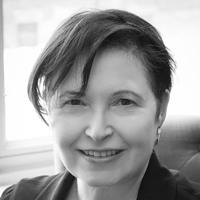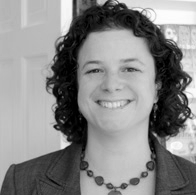

July 6 – 12: “What is the most common mistake writers make in approaching an agent?”
 July is all about literary agents and editors here on The Big Thrill! This week we’re joined by Jennifer Weltz, Albert Longden, Kimberly Cameron, Helen Heller, Janet Reid, Michelle Wolfson, Alec Shane, Beth Phelan and John Raab who will answer the question: “What is the most common mistake writers make in approaching an agent?”
July is all about literary agents and editors here on The Big Thrill! This week we’re joined by Jennifer Weltz, Albert Longden, Kimberly Cameron, Helen Heller, Janet Reid, Michelle Wolfson, Alec Shane, Beth Phelan and John Raab who will answer the question: “What is the most common mistake writers make in approaching an agent?”
~~~~~
Janet Reid, FinePrint Literary Management
www.JetReidLiterary.com
 Janet Reid is on the hunt for high octane, page turning thrillers. In her spare time
Janet Reid is on the hunt for high octane, page turning thrillers. In her spare time
she drinks Scotch and stalks Jack Reacher. Her publishing background includes fifteen years in book publicity with clients both famous and infamous. She is actively looking for projects that show mastery of craft and originality. Ms. Reid is a member of the literary agents professional association AAR, She’s an associate member of Mystery Writers of America and International Thriller Writers. She belongs to the American Library Association, Biographer’s International Organization, the American History Association and is a past board member of the NYC chapter of the Women’s National Book Association
Helen Heller, The Helen Heller Agency
www.helenhelleragency.com
 Helen has spent her career in publishing and specializes in thrillers and major front-list fiction. She likes a big story well told and handles a number of internationally bestselling and multiple-award-winning authors. Helen is a member of the Association of Authors’ Representatives.
Helen has spent her career in publishing and specializes in thrillers and major front-list fiction. She likes a big story well told and handles a number of internationally bestselling and multiple-award-winning authors. Helen is a member of the Association of Authors’ Representatives.
Kimberley Cameron, Kimberley Cameron & Associates
www.kimberleycameron.com
 Kimberley Cameron loves finding new voices. She was the co-founder of Knightsbridge Publishing Company with offices in New York and Los Angeles. In 1993 she became partners with Dorris Halsey of The Reece Halsey Agency, founded in 1957. She opened Reece Halsey North in 1995 and in 2009 the agency became Kimberley Cameron & Associates. She resides and works from Tiburon, California and France.
Kimberley Cameron loves finding new voices. She was the co-founder of Knightsbridge Publishing Company with offices in New York and Los Angeles. In 1993 she became partners with Dorris Halsey of The Reece Halsey Agency, founded in 1957. She opened Reece Halsey North in 1995 and in 2009 the agency became Kimberley Cameron & Associates. She resides and works from Tiburon, California and France.
Jennifer Weltz, Jean V. Naggar Literary Agency, Inc.
www.jvnla.com
 As President of JVNLA, Jennifer Weltz has sold books domestically, internationally, and for film for nearly two decades. Coming from a mediation background, Jennifer sees herself as a liaison between her author and the editor and publishing house that acquire her author’s work. This role takes on a myriad of forms — business manager, confidant, task master, preliminary editor, and matchmaker — to name a few. Since Jennifer takes up an author’s career and not just a project, she is very careful and selective about signing on new authors.
As President of JVNLA, Jennifer Weltz has sold books domestically, internationally, and for film for nearly two decades. Coming from a mediation background, Jennifer sees herself as a liaison between her author and the editor and publishing house that acquire her author’s work. This role takes on a myriad of forms — business manager, confidant, task master, preliminary editor, and matchmaker — to name a few. Since Jennifer takes up an author’s career and not just a project, she is very careful and selective about signing on new authors.
John Raab, Suspense Publishing
www.suspensemagazine.com
 Bio: Born and raised in Ohio, I relocated to Los Angeles, California in 2007. It was that same year my wife, Shannon, and I created Suspense Magazine, which spawned Suspense Publishing onto the literary scene. Currently publishing #1 New York Times Bestselling author, Paul Kemprecos, along with publishing award winning authors Joseph Badal, the writing team of Gary Williams and Vicki Knerly, and Tom B. Sawyer, who was the executive producer of “Murder, She Wrote”. Suspense Publishing is also a partner of the ITW, CWA, HWA and IACW organizations.
Bio: Born and raised in Ohio, I relocated to Los Angeles, California in 2007. It was that same year my wife, Shannon, and I created Suspense Magazine, which spawned Suspense Publishing onto the literary scene. Currently publishing #1 New York Times Bestselling author, Paul Kemprecos, along with publishing award winning authors Joseph Badal, the writing team of Gary Williams and Vicki Knerly, and Tom B. Sawyer, who was the executive producer of “Murder, She Wrote”. Suspense Publishing is also a partner of the ITW, CWA, HWA and IACW organizations.
Beth Phelan, The Bent Agency
www.thebentagency.com
 Bio: Beth Phelan is originally from Fall River, Massachusetts but now lives in Brooklyn. She is a graduate of New York University, lifelong reader and dog person. After holding positions at Waxman Leavell Literary (then called the Scott Waxman Literary Agency) and Howard Morhaim Literary, Beth joined the Bent Agency in 2013 where she is continuing to build her list. She can be found at bethphelan.com, thebentagency.com, and on Twitter at @beth_phelan.
Bio: Beth Phelan is originally from Fall River, Massachusetts but now lives in Brooklyn. She is a graduate of New York University, lifelong reader and dog person. After holding positions at Waxman Leavell Literary (then called the Scott Waxman Literary Agency) and Howard Morhaim Literary, Beth joined the Bent Agency in 2013 where she is continuing to build her list. She can be found at bethphelan.com, thebentagency.com, and on Twitter at @beth_phelan.
Alec Shane, Writers House, LLC
www.writershouse.com
 Bio: Alec majored in English at Brown University, a degree he put to immediate use by moving to Los Angeles after graduation to become a professional stunt man. Realizing that he prefers books to breakaway glass, he moved to New York City in 2008 to pursue a career in publishing. Alec quickly found a home at Writers House Literary Agency, where he has worked directly under agents Jodi Reamer and Amy Berkower since 2009. In that time, he has worked on and provided strong editorial feedback for a large number of Adult and Young Adult titles of all ranges and genres. Alec is now actively seeking out clients for his own list.
Bio: Alec majored in English at Brown University, a degree he put to immediate use by moving to Los Angeles after graduation to become a professional stunt man. Realizing that he prefers books to breakaway glass, he moved to New York City in 2008 to pursue a career in publishing. Alec quickly found a home at Writers House Literary Agency, where he has worked directly under agents Jodi Reamer and Amy Berkower since 2009. In that time, he has worked on and provided strong editorial feedback for a large number of Adult and Young Adult titles of all ranges and genres. Alec is now actively seeking out clients for his own list.
Michelle Wolfson, Wolfson Literary Agency
www.wolfsonliterary.com
B io: Michelle Wolfson formed Wolfson Literary Agency in 2007 and is actively seeking authors of commercial fiction and non-fiction. She holds a BA from Dartmouth College and an MBA from New York University. She spent several years working outside publishing, in non-profit and then finance, and she brings the skills she learned there plus a lifetime love of reading to the table as an agent. (photo by Erin Summerill)
io: Michelle Wolfson formed Wolfson Literary Agency in 2007 and is actively seeking authors of commercial fiction and non-fiction. She holds a BA from Dartmouth College and an MBA from New York University. She spent several years working outside publishing, in non-profit and then finance, and she brings the skills she learned there plus a lifetime love of reading to the table as an agent. (photo by Erin Summerill)
Albert Longden, Albert T. Longden Agency
www.publishersmarketplace.com/members/atlong
 Bio: I look for the cream within this milk-jug of an industry. With a limited amount of time, I want writers that are preferably experienced and are willing to listen to productive critiques of their work. I love old fashioned story telling in the mode of an Earl Biggers, Conan Doyle, Sax Rohmer, Rider Haggard, Kipling, Poe and Bourroughs. More recently, E. Peters, Anne Rice, Laurie King and Preston & Childs are my favorites. Look to these authors with a creative current-thinking attitude and you’ll have something. 35+ years within the publishing industry in all areas: editorial, product development, sales, foreign rights, administration, fulfillment and distribution. I’ve been a CFO, COO, VP and Publisher at major and minor houses and imprints. A writer and entrepreneur, I look for commercial projects with a strong literary attitude. If you’re looking for an Editor, this is, currently, the wrong agency for you.
Bio: I look for the cream within this milk-jug of an industry. With a limited amount of time, I want writers that are preferably experienced and are willing to listen to productive critiques of their work. I love old fashioned story telling in the mode of an Earl Biggers, Conan Doyle, Sax Rohmer, Rider Haggard, Kipling, Poe and Bourroughs. More recently, E. Peters, Anne Rice, Laurie King and Preston & Childs are my favorites. Look to these authors with a creative current-thinking attitude and you’ll have something. 35+ years within the publishing industry in all areas: editorial, product development, sales, foreign rights, administration, fulfillment and distribution. I’ve been a CFO, COO, VP and Publisher at major and minor houses and imprints. A writer and entrepreneur, I look for commercial projects with a strong literary attitude. If you’re looking for an Editor, this is, currently, the wrong agency for you.
- LAST GIRL MISSING with K.L. Murphy - July 25, 2024
- CHILD OF DUST with Yigal Zur - July 25, 2024
- THE RAVENWOOD CONSPIRACY with Michael Siverling - July 19, 2024
